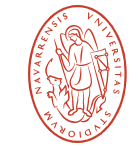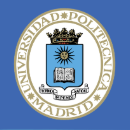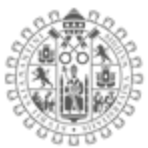Introduction
The University of Barcelona (UB) is a world-class public university located in Barcelona, the capital of the autonomous region of Catalonia, Spain. It is one of the oldest institutions of higher learning in the world.
Overview
The University of Barcelona has a complete range of disciplines, covering many fields, and has trained a large number of outstanding professionals. It provides students with rich academic resources and research opportunities. Graduates are highly competitive in Spain and internationally.
History and establishment time
Its origins can be traced back to the Martino II period in Sicily. On November 3, 1450, under the instructions of Pope Nicholas V and the rule of King Alfonso V of the Kingdom of Aragon, the Barcelona General Research Institute was officially established, which is now the University of Barcelona.
School Strength
Faculty: It has many excellent teachers, including experts and scholars in various disciplines. They not only have profound professional knowledge, but also have rich teaching and research experience, providing students with high-quality education and guidance.
Teaching facilities: Equipped with advanced teaching facilities and scientific research equipment, such as libraries, laboratories, computer centers, etc., it provides good conditions for students' study and research.
Research results: As a leading research university in Spain, its research results are the most abundant in Spain, except for the Spanish National Research Council. The school actively participates in various scientific research projects, has achieved remarkable scientific research results in many fields, and has promoted the development of disciplines and social progress.
Institutional nature
Public university.
Educational philosophy
Focus on cultivating students' free thinking, innovation ability and social responsibility, emphasize academic freedom and the dissemination and innovation of knowledge, and encourage students to actively participate in academic research and social practice to cultivate professionals with global vision and social responsibility.
Key laboratories and disciplines
Key disciplines: Medicine, science, literature, law, economics and other disciplines are all its advantageous disciplines, and have a high academic status and influence in Spain and even in the world. For example, majors such as neuroscience and clinical medicine in the field of medicine, mathematics and physics in the field of science, and linguistics and history in the field of literature have cultivated many outstanding talents.
Key laboratories: The Center for Science and Technology of the University of Barcelona (CCiTUB) is a collection of multiple centers responsible for supporting research at universities and other public and private institutions. In addition, there are some laboratories in professional fields, such as biomedical research laboratories and material science laboratories, which provide important support for scientific research in related disciplines.
Faculty
The University of Barcelona has several faculties, including the Faculty of Humanities, the Faculty of Social Sciences, the Faculty of Natural Sciences, the Faculty of Medicine, the Faculty of Engineering, etc. Each faculty contains multiple colleges and departments, which together constitute the university's teaching and research system.
Ranking
Ranked 184th in the 2023 QS World University Rankings, 182nd in the 2023 Times Higher Education World University Rankings, 86th in the 2023 US World University Rankings, and 151-200th in the 2022 Soft Science World University Rankings.
Expenses
Tuition fees vary depending on the major and degree level. Generally speaking, undergraduate tuition fees are relatively low, about 2,000-3,000 euros per year; master's tuition fees vary according to different majors, about 3,000-6,000 euros per year. In addition, students are required to pay certain registration fees and other fees. In terms of living expenses, the cost of living in Barcelona is relatively high, with monthly accommodation costs ranging from about 300-600 euros, and other living expenses such as food and transportation are about 300-500 euros per month.
Campus Environment
The campus architecture of the University of Barcelona is diverse, with ancient historical buildings, modern teaching buildings and scientific research facilities. The main campus is located in the Eixample district in the center of Barcelona, with convenient transportation and a strong cultural atmosphere. The campus is shaded by trees and has a beautiful environment, providing students with a comfortable learning and living environment. In addition, the school is constantly carrying out campus construction and renovation to meet the needs of students and teaching and research.
-

University of Navarra
-

Autonomous University of Madrid
-

Polytechnic University of Catalonia
-

CEU University of San Pablo
-

Technical University of Madrid
-

University of Lleida
-

University of Barcelona
-

University of Oviedo
-

University of Valladolid
-

University of Salamanca
-

Mesoamerican University
-

Istmo University
-

Mariano Galvez University of Guatemala
-

Regional University of Guatemala
-

Galileo University
-

Francisco Marroquín University
-

Rafael Landívar University
-

University of the Valley of Guatemala
-

University of San Carlos of Guatemala
-

Technological Institute of Tlaxcala Plateau
-

Golfo University
-

Technological University of South Sonora
-

Technological University of Huejotzingo
-

Tizimín Institute of Technology
-

Chilpancingo Institute of Technology
